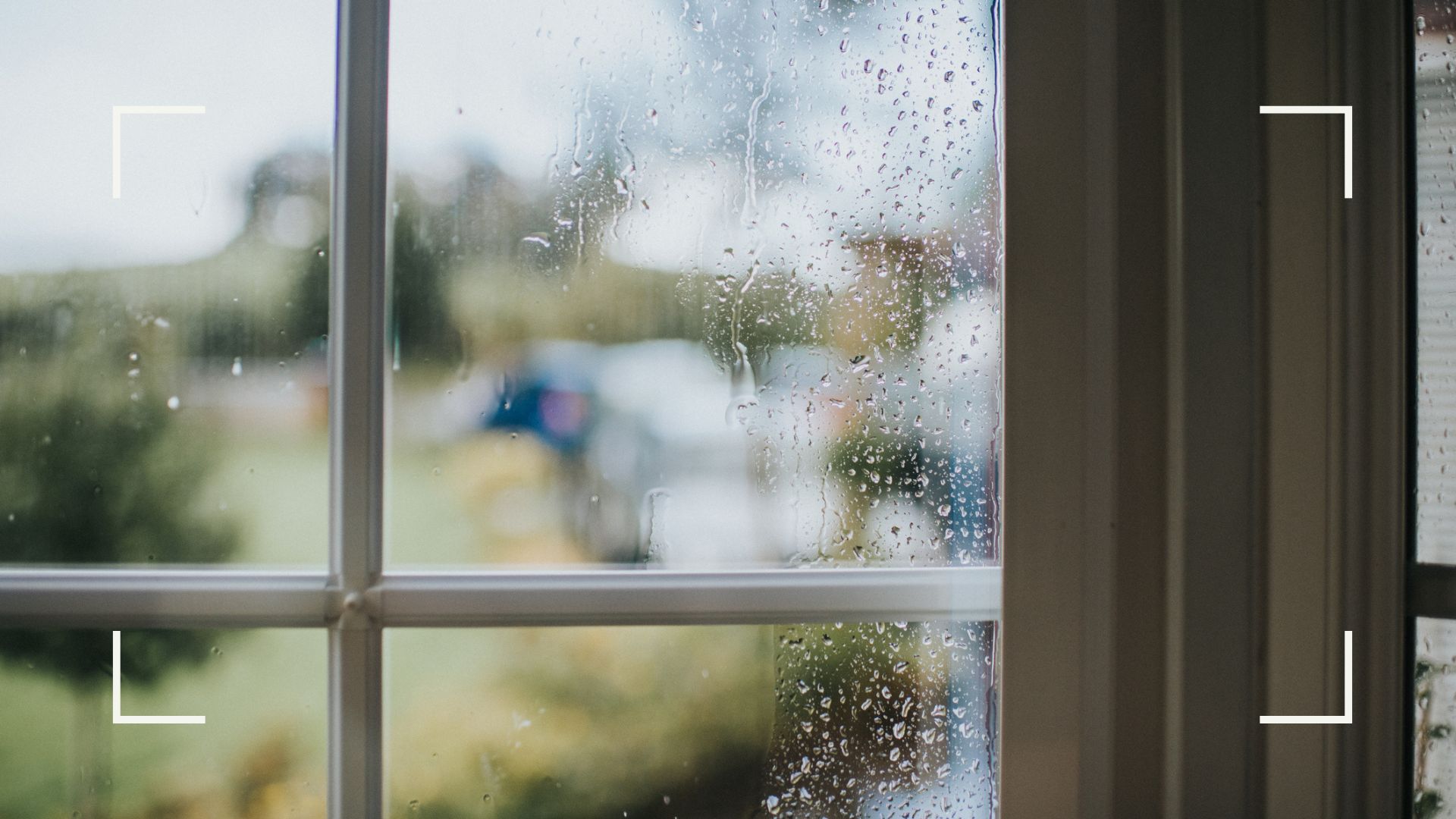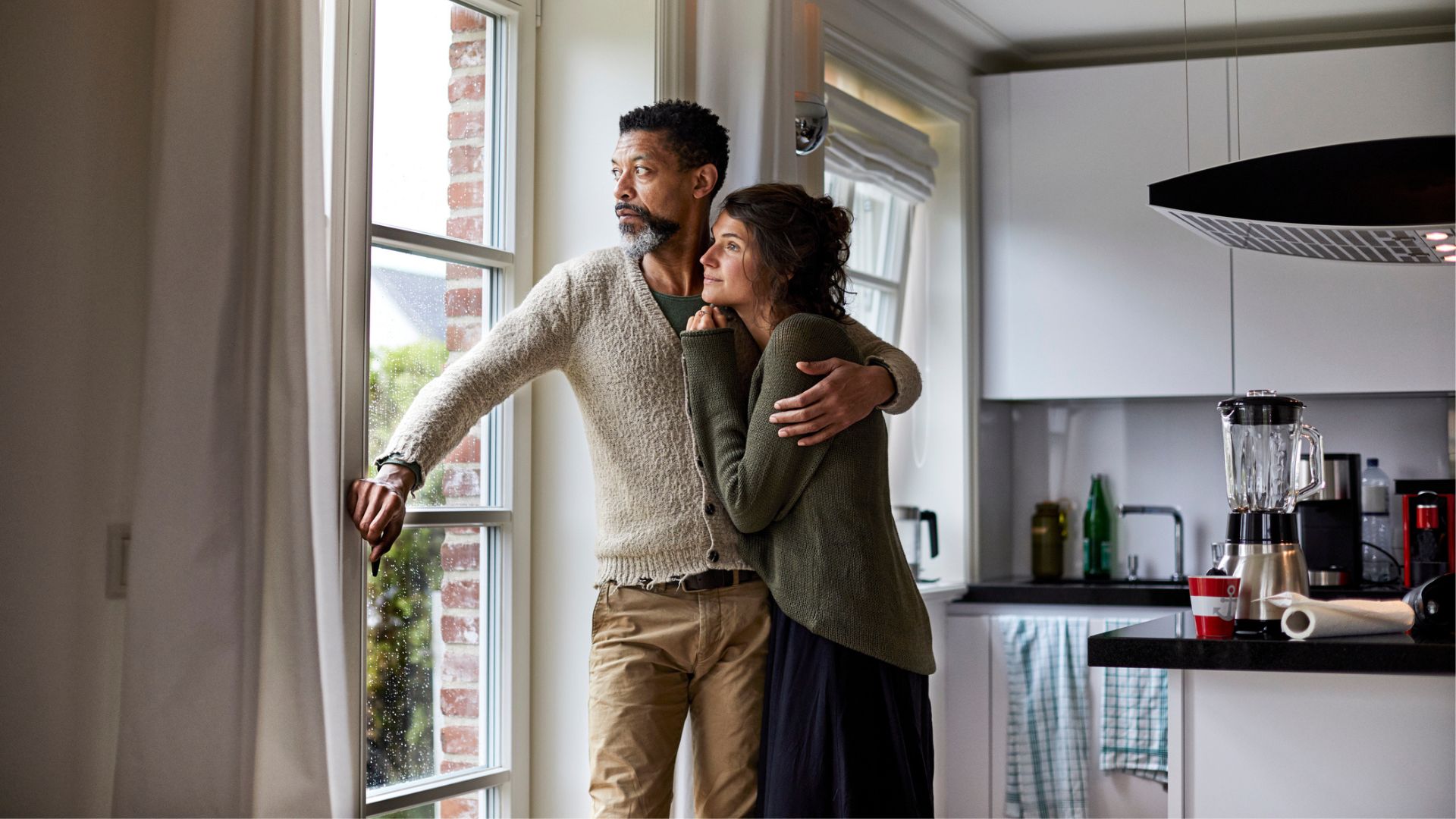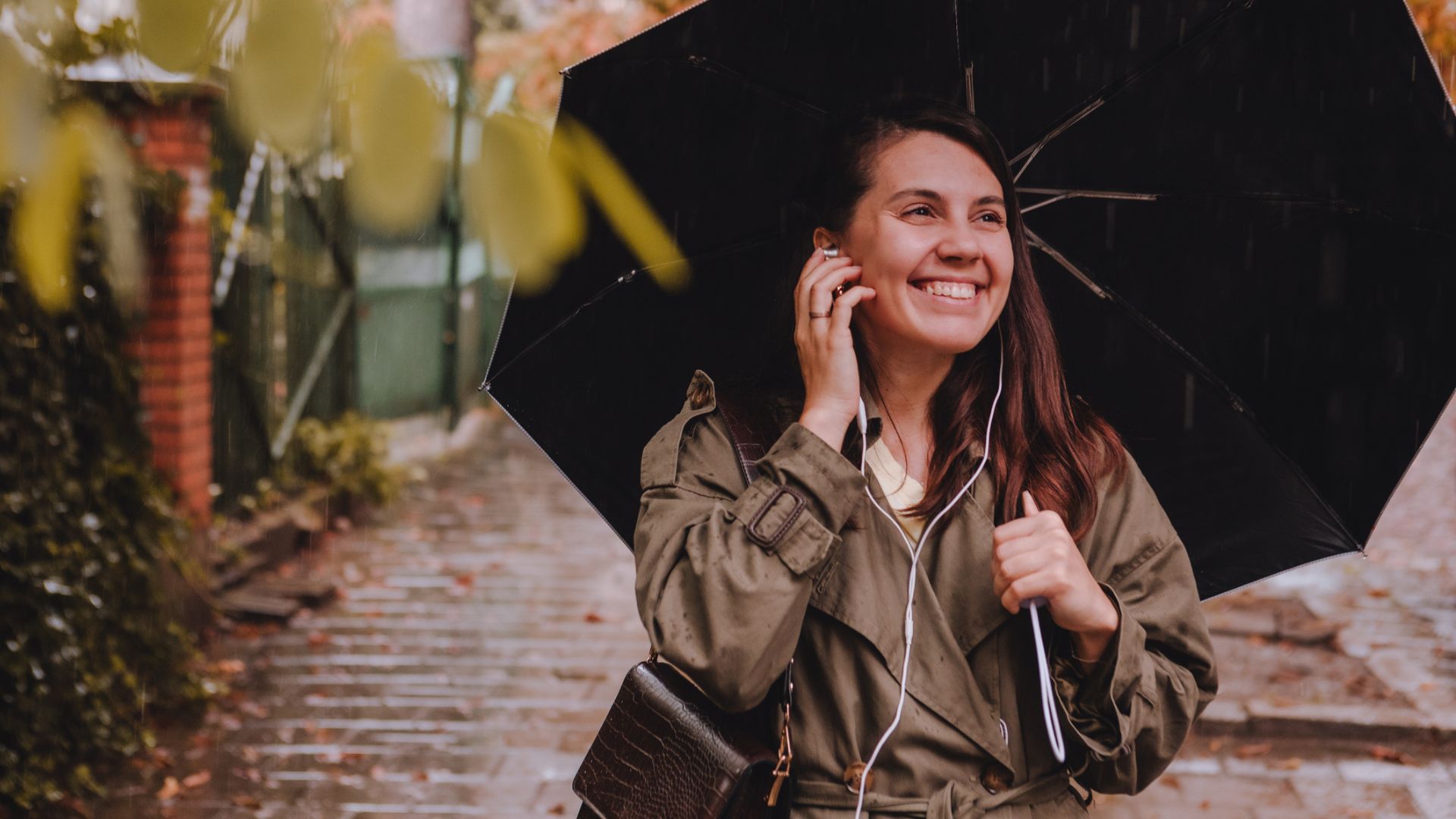Why does rain make you sleepy? Psychologist explains how the weather impacts our sleep
Why does rain make you sleepy? Here, a health psychologist and sleep expert explains the impact the weather has on our sleep


Why does rain make you sleepy? If recent downpours have had you canceling plans to spend the evening on the couch or heading to bed early, you're not the only one.
There's no bigger sign that summer is on its way out of the door than rain. While summer rain is a welcome occurrence, the rain that comes at the beginning of fall turns the sky a gloomy shade of gray and the temperature seems to plummet down almost immediately. This might not be such great news for any upcoming social plans - but it does wonders for our sleep patterns.
If you've ever tried to listen to white, pink noise, or brown noise for sleep, then you'll know that rain is also one of the most popular ASMR sleep sounds out there. But why does it work so well as one of the best sleep aids for drifting off naturally? This is what a health psychologist and sleep specialist wants you to know, plus, where you can find the best rain sounds to drift off to.
Why does rain make you sleepy?
Rain makes us feel sleepy because it's white noise (heavy rain) or pink noise (steady rain), explains Dr Sue Peacock, a leading health psychologist and sleep specialist. "These noises are similar in that they both mask out other sounds from our normal hearing range and they can be used as ambient sound to drown out other noises, especially when sleeping," she explains.
Research has pointed to the idea that this type of noise, which reaches across the spectrum of sound, works helps us learn how to sleep better because it helps to synchronize our brain waves. "It covers the full frequency range and it can cover up most sounds. Pink noise is, in theory, less effective because it's softer and less harsh, so it's easier to listen to. This is perhaps why listening to heavy rain can soothe us to sleep," Dr Peacock, who is also the author of Sleeping with Pain, says.
While scientists have yet to fully decide why we drift off so well with white noise, several studies show it really does work. Research from Harvard Medical School and Cornell University, for instance, found that white noise helps adults fall asleep faster by as much as 38% in some cases and those who listen to white noise also tend to spend more time in bed and achieve a better quality of sleep throughout the night.
But white noise comes in plenty of other forms apart from rain, like television static, a whirring fan, vacuum cleaning, or a strong hair dryer. Some people also can't fall asleep with artificial noises in the background, including rain sounds on mindfulness apps, but have no issue drifting off when it's real rain outside. So what's really so special about it? Dr Peacock tells woman&home...
Sign up to our free daily email for the latest royal and entertainment news, interesting opinion, expert advice on styling and beauty trends, and no-nonsense guides to the health and wellness questions you want answered.

1. There's a lack of sunlight
It's not very often that blazing sunshine accompanies a downpour. More often than not when it's raining, dark clouds are rolling in and the sky begins to darken. Not only does this make us naturally want to crawl under the covers or spend the day on the couch, our bodies actually take it as a signal that it's time for sleep.
As research from the University of Göttingen explains, our brain's pineal gland begins to secret a hormone called melatonin when it gets dark outside. It's the body's natural sleep aid as this is what signals to us that we're tired and it's time for bed.
When it's raining, the same thing happens - the pineal gland is stimulated by the lack of sunlight, more melatonin enters the bloodstream, and we naturally feel more tired. We tend to sleep less during the summer months for a similar reason; sunlight has the reverse effect and prevents the gland from releasing melatonin.
2. Rain is a non-threatening sound
Another hormone that comes into play when we're trying to sleep is adrenaline, one of the stress hormones. This is made in the adrenal gland and it's directly linked to our fight or flight response, so the more of it we have pumping through our systems, the more on edge we're going to be.
"Research [from institutions such as Sangmyung University] suggests that the sound of rain is perceived as non-threatening by the brain," Dr Peacock explains. "The rhythmical monotone sounds don't trigger our threat-activate response system, which is an evolutionary response to sudden loud, shrill noises." So the sound of rain can help to keep our adrenaline levels at a healthy level before sleep and it can even work to replace other noises which may have otherwise caused these levels to rise.
3. Rain is a meditative sound
There's a reason why so many people practice meditation before they go to sleep and the simple repetitive sound of rain can induce the same meditative feeling, the psychologist says. "Rain triggers the alpha waves in the brain, relaxing our over-stimulated brains to help us sleep more quickly."

4. Increased humidity
In the height of the summer, we were wondering why heat makes you tired and one of those reasons was the humidity that often comes with hot weather. That sticky, hot feeling you get like there's not enough air around and you're wading through treacle? It's also common when it rains outside, as the water saturates the air with vapor in just the same way.
The higher humidity and heat mean our bodies work harder to stay cool, sending blood to the surface of the skin to cool down. This makes us feel fatigued at best, meaning we're more likely to feel tired and want to head to bed early.
5. It masks distracting noises
This is the main reason why rain makes you feel sleepy. If you live in a city or somewhere where the noise tends to be constant outside your bedroom window and you struggle to fall asleep, then rain noises may really help you because they mask the sounds around you.
"While we sleep, our brains continue to process sounds, and things like car doors slamming, dogs barking, and people talking noisily in the street will often stimulate our brains and disturb our sleep, so the sound of rainfall can mask out these sounds," explains Dr Peacock.

Grace Walsh is woman&home's Health Channel Editor, working across the areas of fitness, nutrition, sleep, mental health, relationships, and sex. She is also a qualified fitness instructor. In 2025, she will be taking on her third marathon in Brighton, completing her first ultra marathon, and qualifying as a certified personal trainer and nutrition coach.
A digital journalist with over seven years experience as a writer and editor for UK publications, Grace has covered (almost) everything in the world of health and wellbeing with bylines in Cosmopolitan, Red, The i Paper, GoodtoKnow, and more.